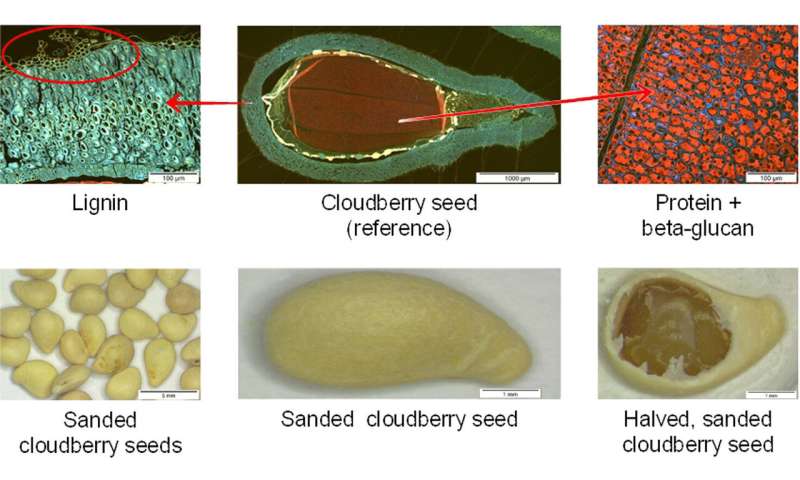Skin spray with berry extracts and nanocellulose targets hospital-acquired bacteria

VTT has developed a skin spray, based on nanocellulose and antimicrobial compounds from wild berries, which can be used to treat wounds and eliminate hospital-acquired bacteria such as MRSA before surgery. The product can also be applied as a cream, transdermal patch or wound dressing.
"The fast-acting surgical spray and efficacious dressing are based on a manufacturing process we have developed, where the surface and pores of a nanocellulose film are impregnated with a berry extract so that the antimicrobial compounds do not get trapped inside the fiber network. VTT has more than 15 years of experience in the laboratory-scale and pilot-scale manufacturing of nanocellulose gels and films," says Panu Lahtinen, a Senior Scientist at VTT.
The next step for the berry extract, which is produced using VTT InnoBerry Technologies manufacturing method, is to find companies interested in developing, producing and commercializing the products, so they can be launched onto the market in the next few years.
In nature, berry compounds protect the seed
The surface of berry seeds is rich in antimicrobial compounds, so berry extracts are useful for food, cosmetic and medical applications. The role of these compounds in nature is to protect the seed from microbes such as molds before germination, but they can also help prevent the growth of dangerous microbes on human skin. Even a tiny amount of berry extract can kill pathogenic bacteria such as MRSA without harming the skin's beneficial microbiota.

Berries are used to make juice, but significant quantities of press cake remain as a by-product after processing. This press cake contains the berry skin and seeds, which are rich in antimicrobial compounds. VTT has developed technologies to generate press-cake extracts enriched with these compounds, or to produce the key molecules in cultivated plant cells using plant biotechnology, which allows year-round production unaffected by variations in the berry harvest.
For more than 20 years, VTT has been studying the health benefits of arctic berries and their antimicrobial properties. These studies have shown that berries contain antimicrobial phenolic compounds, such as ellagitannins, that kill pathogenic bacteria effectively. Such compounds can be recovered from the press cake using VTT's patented dry and wet fractionation technologies followed by environmentally friendly hydrothermal extraction without the use of harmful solvents.
The berry extract developed by VTT can also replace the use of synthetic preservatives in cosmetics and nanosilver formulations in wound-care products.
"Our research has identified antimicrobial compounds in several wild berries, including sea buckthorn, bilberry, strawberry, cloudberry, lingonberry and raspberry. Large-scale production is easiest to achieve from raspberry because there is sufficient raw material. To process the seeds, it's necessary to find a company that is experienced in this task in the value chain," says Kirsi-Marja Oksman-Caldentey, Associate Professor and Senior Advisor at VTT.
Antibiotic-resistant bacteria are one of the greatest medical challenges
The World Health Organization (WHO) includes antibiotic-resistant bacteria among the top ten global health challenges. There has been an increase in the number of difficult-to-treat wound infections caused by methicillin-resistant Staphylococcus aureus (MRSA), a severe pathogen. MRSA is quite common in the Finnish population, with around 20% of Finns unknowingly carrying these bacteria. If MRSA enters a wound, for example during surgery, it can be fatal.
Provided by VTT Technical Research Centre of Finland